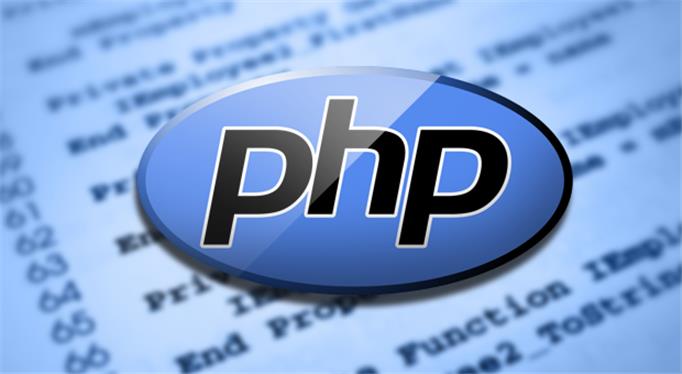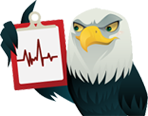A Guide to the Best PHP Frameworks
By Alex Carter on October 28, 2024

Since its inception over two decades ago, PHP has grown into one of the world’s most popular server-side scripting languages. Used by around 82% of websites with known server-side programming languages, PHP forms the backbone of many web applications today, particularly those using the LAMP (Linux, Apache, MySQL, PHP) stack. This widespread use makes PHP an accessible language, with a wealth of tutorials and resources available for developers at any level.
However, building complex applications can be a time-consuming process. PHP frameworks offer essential support by providing developers with a structured environment to streamline project development, improve code quality, and simplify long-term maintenance. For businesses and startups, a PHP framework provides agility and scalability essential for growth, while allowing developers to focus on the bigger picture.
In this article, we’ll explore some of the most widely recognized PHP frameworks, each offering unique features that make it popular among developers and organizations. Whether you’re new to PHP or a seasoned pro, these frameworks offer powerful tools to help you build and deploy applications efficiently.
Symfony
Symfony is one of the most respected PHP frameworks, well-suited for building robust, enterprise-level applications. Initially released in 2005, Symfony emphasizes the model-view-controller (MVC) approach, allowing nearly every aspect of the development process to be customized. Many developers appreciate Symfony’s flexibility, and its release under the MIT license has solidified its popularity within the open-source community. Symfony also serves as a foundation for other frameworks, with components like Laravel built on Symfony’s architecture.
Laravel
Laravel has quickly become one of the most widely used PHP frameworks due to its elegant syntax and ease of use. It supports a range of project types, from simple scripts to large-scale enterprise applications, making it suitable for developers of all experience levels. By leveraging various Symfony components, Laravel provides a solid and reliable foundation that promotes well-tested, maintainable code. Laravel’s simplicity and broad community support make it a go-to choice for many PHP developers today.
CodeIgniter
CodeIgniter is known for its lightweight structure and simple, yet powerful tools, making it an excellent choice for developers seeking speed and efficiency. CodeIgniter uses the MVC architecture and is highly regarded for its fast performance compared to other frameworks. Originally created by EllisLab, CodeIgniter is now maintained by the British Columbia Institute of Technology. Its low footprint and straightforward approach allow developers to build fully-featured web applications without unnecessary complexity.

CakePHP
CakePHP is a popular open-source PHP framework with a long-standing reputation for stability and ease of use. Since its release in 2005, it has gained a strong user base thanks to its clean coding structure, reliance on MVC, and ability to simplify complex applications. The Cake Software Foundation holds an annual CakePHP-focused conference, CakeFest, drawing in developers from around the world. For those looking for an intuitive framework with rapid deployment capabilities, CakePHP is an ideal choice.
Phalcon
Phalcon is unique among PHP frameworks as it is written in the C language, providing high-performance capabilities while still allowing developers to work within PHP. The framework is known for its exceptional speed and efficiency, with platform independence that extends to Windows, Linux, and macOS. Although relatively new compared to other frameworks, Phalcon’s documentation and community support have helped it gain popularity among developers looking for a performance-oriented PHP framework.
Yii
Yii, an acronym for “Yes, It Is!” has become well-regarded for building Web 2.0 applications. As a component-based MVC framework, Yii offers rich features including caching, role-based access control, and testing, which make it particularly well-suited for complex projects. Yii’s robust architecture and scalable design have made it a popular choice for applications requiring a solid foundation and seamless performance.
Zend Framework
Zend Framework 2, backed by Zend Technologies, co-founded by PHP creators Andi Gutmans and Zeev Suraski, is a powerful open-source framework used to develop web applications and services. Leveraging PHP 5.3+ and the MVC architecture, Zend is part of a larger ecosystem, including Zend Server and Zend Studio, that provides tools and services tailored for PHP developers. The upcoming release of Zend Framework 3 promises enhancements aligned with PHP 7, with a focus on simplicity, reusability, and performance.
Posted in blog, Web Applications
Alex Carter
Alex Carter is a cybersecurity enthusiast and tech writer with a passion for online privacy, website performance, and digital security. With years of experience in web monitoring and threat prevention, Alex simplifies complex topics to help businesses and developers safeguard their online presence. When not exploring the latest in cybersecurity, Alex enjoys testing new tech tools and sharing insights on best practices for a secure web.
